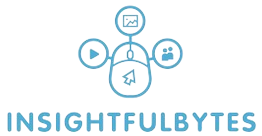Introduction
The modern supply chain is a complex network involving multiple stakeholders, including suppliers, manufacturers, distributors, and retailers. As these networks become more interconnected and reliant on digital technologies, the potential for vulnerabilities increases. Cyberattacks targeting supply chain systems can have far-reaching consequences, disrupting operations, compromising sensitive data, and eroding trust. This article explores the role of hacking, particularly ethical hacking, in identifying and mitigating vulnerabilities within supply chain systems.
Understanding Supply Chain Systems
Supply chain systems encompass the entire process of producing and delivering goods and services, from raw material acquisition to the end consumer. These systems leverage various technologies, including enterprise resource planning (ERP) software, inventory management systems, and communication platforms. The complexity and interdependence of these systems make them attractive targets for cyber threats.
Key Components of Supply Chain Systems
- Procurement: Involves sourcing raw materials and managing supplier relationships.
- Production: Covers manufacturing processes and quality control.
- Logistics: Encompasses transportation, warehousing, and distribution.
- Inventory Management: Tracks stock levels, orders, and deliveries.
- Information Technology: Integrates various software and communication tools to streamline operations.
The Role of Hacking in Security Testing
Hacking, often perceived negatively, plays a crucial role in enhancing cybersecurity through ethical hacking practices. Ethical hackers, also known as white-hat hackers, use their skills to identify and address security weaknesses before malicious actors can exploit them. In the context of supply chain systems, ethical hacking can simulate potential cyberattacks to evaluate the resilience of the system.
Types of Ethical Hacking
- Penetration Testing: Simulates real-world attacks to identify exploitable vulnerabilities.
- Vulnerability Assessment: Systematically scans for known weaknesses in the system.
- Red Teaming: Comprehensive testing that involves simulated attacks on multiple fronts to assess overall security posture.
- Social Engineering: Tests the human elements of security by assessing susceptibility to phishing and other manipulation tactics.
Benefits of Identifying Vulnerabilities through Hacking
Identifying vulnerabilities in supply chain systems through hacking offers numerous benefits that contribute to the overall security and efficiency of the supply chain.
Proactive Risk Management
By uncovering vulnerabilities before they are exploited, organizations can implement measures to mitigate risks, ensuring the continuity of operations and safeguarding against potential disruptions.
Enhanced Security Posture
Regular security assessments through ethical hacking help in continuously improving the security measures in place, making the supply chain more resilient against evolving cyber threats.
Compliance and Regulatory Adherence
Many industries have stringent regulatory requirements regarding data protection and cybersecurity. Ethical hacking assists organizations in meeting these compliance standards by identifying and addressing security gaps.
Cost Savings
Addressing vulnerabilities proactively can prevent costly data breaches and operational disruptions, leading to significant cost savings in the long run.
Case Studies: Success Stories
Case Study 1: Retail Giant
A leading retail company engaged a team of ethical hackers to perform a comprehensive security assessment of their supply chain systems. The hackers identified several critical vulnerabilities in the company’s ERP software and communication protocols. By addressing these issues proactively, the company prevented potential data breaches that could have compromised customer information and disrupted their supply chain operations.
Case Study 2: Manufacturing Firm
A manufacturing firm implemented regular penetration testing on their supply chain systems. The ethical hackers discovered weaknesses in their inventory management system that could have been exploited to manipulate stock levels. The firm promptly reinforced these vulnerabilities, ensuring the integrity of their inventory data and maintaining smooth operations.
Ethical Considerations
While hacking can significantly enhance the security of supply chain systems, it is essential to conduct these activities ethically and responsibly.
Obtaining Proper Authorization
Ethical hacking should always be carried out with explicit permission from the organization. Unauthorized hacking, even with good intentions, can lead to legal repercussions and damage trust.
Maintaining Confidentiality
Information discovered during ethical hacking must be kept confidential. Sharing vulnerabilities with unauthorized parties can expose the organization to further risks.
Adhering to Legal Frameworks
Ethical hackers must operate within the bounds of the law, ensuring that their activities comply with relevant regulations and standards.
Conclusion
Hacking, particularly in the form of ethical hacking, is a powerful tool for identifying and addressing vulnerabilities in supply chain systems. By proactively uncovering security weaknesses, organizations can enhance their resilience against cyber threats, ensure the continuity of their operations, and maintain the trust of their stakeholders. As supply chains continue to evolve and integrate more digital technologies, the role of ethical hacking in safeguarding these systems will become increasingly vital.

